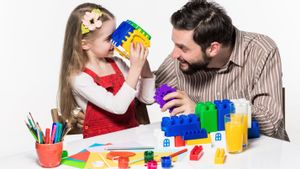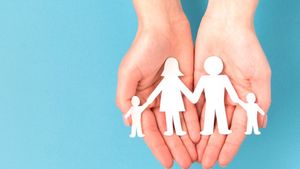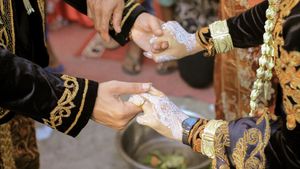YOGYAKARTA Self-regulation is related to controlling emotions and behavior. In children, when they are two years old and often tantrums, it may be natural. But when they are five years old, they need to learn how to control their emotions and behavior. This is called self-regulation that parents need to teach.
Tricks in building emotional control skills can be done from small activities. For example, if your child finds it difficult to brush your teeth, you can guide them. Starting from applying toothpaste on their brushes and giving praise if they do well. When teaching this simple habit, add steps slowly, sustainably and consistently.
When children refuse, seek excuses, have a long time to reflect, and slow down the development of self-regulation skills with simple activities, it is important for parents to ask themselves. Think there is something wrong, why did it happen, and how to fix it at another time.
Apart from building a routine whose steps are added little by little but consistently, training vigilance also helps self-regulate. Launching the Child Mind Institute, Sunday, February 18, training vigilance, or mindfulness, teaches children how to focus on the present, not in the past or the future. For older children, they can use dialectic behavioral therapy or dialectal behavioral behavioral behavioral behavioral hazard (DBT). This therapy can help regulate emotions and tolerance for pressure.
Simply put, self-regulation is the difference between two and five-year-old children who are better able to control their emotions. Helping children who have not developed self-regulation skills at normal age is the goal of a parent's training program. And many older children, even though they are no longer raging, continue to struggle with impulsive and inappropriate behavior.
Self-organization includes high emotional reactions to annoying stimuli, self-catching when angry, adapting to change, and dealing with frustration without tantrums. Some children, according to clinical psychologist Matthew Rouse, Ph.D., have a large and strong reaction. They can't inhibit immediate behavioral responses. Self-regulating difficulties, can last for a long time and lead to behavioral explosions.
The built-in capacity of a child to regulate himself is based on temperament and personality,' explains Rouse.
Children who have difficulty calming down, added Rouse, become very depressed when you try to wash or wear clothes, for example. These children are more likely to experience problems with emotional settings when they are an adult. It can also be formed by the environment. For example, when you and your partner are easily angry and don't build secure engagement with their children, they will act, get angry, and have difficulty developing self-discipline.
SEE ALSO:
How to help children develop self-regulation, starting with helping children slow down or be more careful choosing an effective response. That way they don't act impulsively. The key, teach that difficult situations must be handled independently. Of course, it is necessary to measure the capacity of children's difficulties and independence, yes. For example, mathematical tasks, homework cleans up their rooms, to social relationships with their peers.
In addition to the methods above, parents also need to help their children be more reflective in shaping their self-regulation skills. Give them a break after they behave impulsively, for example. Avoid judgment or explode angry. Teach them to recognize what is wrong with their behavior, why do it, and how to fix it at other times. In this way, children learn to make better choices. They will also be wise, reflective, and self-aware.
The English, Chinese, Japanese, Arabic, and French versions are automatically generated by the AI. So there may still be inaccuracies in translating, please always see Indonesian as our main language. (system supported by DigitalSiber.id)


















